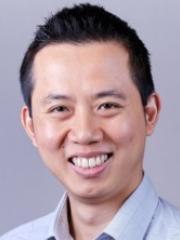Dr Jeffrey Mak

Researcher biography
Biography
Jeffrey Mak (PhD) is an organic chemist at the Institute for Molecular Bioscience. His publications cover a range of disciplines such as biological and medicinal chemistry, total synthesis, and physical organic chemistry. Dr Mak was selected as a Rising Star of Chemistry by the Australian Journal of Chemistry (2022).
Jeffrey Mak was awarded the Harriett Marks Bursary and a UQ University Medal before undertaking doctorate studies in natural product total synthesis with Prof. Craig Williams. This culminated in the first total synthesis of two caged diterpenes, (−)-neovibsanin G and (−)-14-epi-neovibsanin G. Next, he joined Prof. David Fairlie's group at the Institute for Molecular Bioscience. He is currently active in the fields of chemical biology and drug development. He is recognised for his development of ligands that modulate mucosal associated invariant T (MAIT) cells, which are a newly characterised subset of immune cells important in antibacterial defence (Accounts of Chemical Research, 2021). In 2014, he was part of an Australian team that discovered the identity of the ligands that activate MAIT cells, as published in Nature, playing a key role in the chemical synthesis and characterisation of the unstable and structurally unprecedented ligands (Nature Communications, 2017). He was selected as a CAS SciFinder Future Leader by the Chemical Abstract Service (a division of the American Chemical Society, 2017). In 2018, Dr Mak was chief investigator on a UQ Early Career Researcher Grant for developing new drug leads that target MAIT cells. Other recent awards include RSC Twitter Poster Conference (Chemical Biology) 1st Prize (2018), and a CASS Travel Award (2018).
Dr Mak has lectured in the undergraduate course Advanced Organic Chemistry (CHEM3001, 2017-2023). He has also served as a member of the UQ Cultural Inclusion Council, and as an ACS Wikipedia Fellow to systematically improve the chemistry and scientific content on Wikipedia (2018).
Student projects
Projects in medicinal chemistry, synthesis, and chemical biology are available (depending on lab space) for enthusiastic organic chemistry students at all levels (PhD, Masters, Honours, Undergraduate). These include the design and synthesis of:
- Stable analogues of immunostimulating bacterial ligands towards vaccines and anti-cancer immunotherapies
- Chemical biology tools for exploring MAIT cell activation
- Highly selective histone deacetylase (HDAC) inhibitors as new drug leads
Previous student publications:
- Mak JYW* et al. (2024) Potent Immunomodulators Developed from an Unstable Bacterial Metabolite of Vitamin B2 Biosynthesis. Angewandte Chemie, e202400632.
- Mak JYW et al. (2021) HDAC7 inhibition by phenacetyl and phenylbenzoyl hydroxamates. Journal of Medicinal Chemistry, 64 (4), 2186-2204.
- Awad W, Ler GJM et al. (2020) The molecular basis underpinning the potency and specificity of MAIT cell antigens. Nature Immunology, 21 (4), 400-411.
- Ler GJM, Xu W, Mak JYW, Liu L et al. (2019) Computer modelling and synthesis of deoxy and monohydroxy analogues of a ribitylaminouracil bacterial metabolite that potently activates human T cells. Chemistry – A European Journal, 25 (68), 15594-15608.
